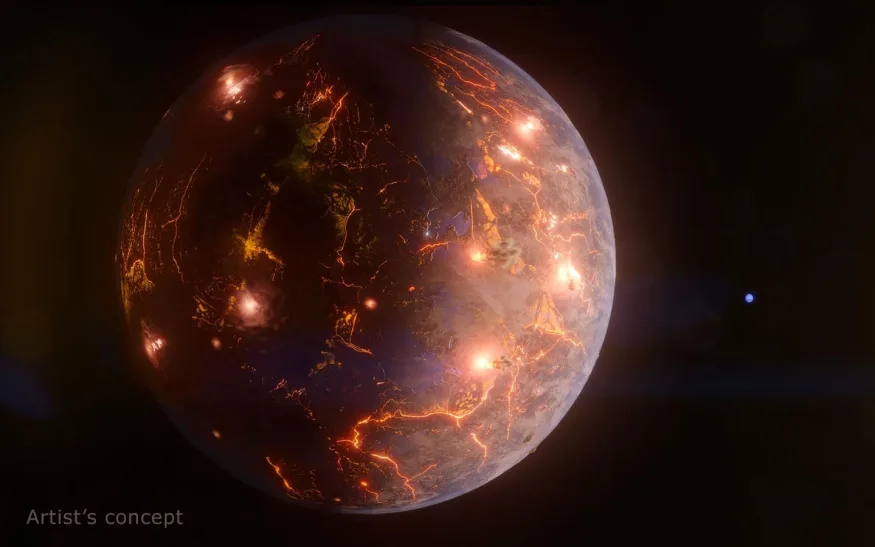In a groundbreaking discovery, astronomers have set their gaze upon a distant exoplanet known as LP 791-18 d, unveiling a fiery world of active volcanoes and tantalizing prospects for the existence of water. Published in the esteemed journal Nature, a team of international scientists shared their findings, shedding light on this Earth-sized celestial body situated approximately 90 light-years away in the Crater constellation.
The atmosphere of the planet may enable water to condense on the dark side
Tidally locked to a red dwarf star, LP 791-18 d lacks the familiar diurnal rhythm of Earth. Instead, one side of the planet endures never ending scorching sunlight, while darkness engulfs the other side. Björn Benneke, one of the participating astronomers, elaborated that while the day side would be too blisteringly hot for liquid water, the widespread volcanic activity detected on LP 791-18 d suggests the potential for an atmosphere that might enable water to condense on the night side.

Within the LP 791-18 system, which houses at least two other known planets—LP 791-18 b and c—LP 791-18 d orbits in a peculiar dance influenced by its sizable neighbour. LP 791-18 c, over two-and-a-half times the size of Earth and more than seven times its mass, exerts a gravitational pull that imparts an elliptical trajectory upon LP 791-18 d. This elliptical path causes the planet to undergo cyclic deformations during each orbit, leading to substantial internal friction and volcanic activity on its surface, as detailed by NASA.
The significance of these volcanic processes goes beyond mere geological curiosity; they hold profound implications for the field of astrobiology, which seeks to unravel the origins of life both on Earth and beyond. Jessie Christiansen, a co-author of the study, emphasized the crucial role played by tectonic and volcanic activity in fostering the conditions necessary for life. Apart from potentially facilitating the development of an atmosphere, these volcanic mechanisms can upheave materials that might otherwise sink and become trapped in the planet’s crust, including vital elements such as carbon.
As our knowledge of the universe expands, the discovery of LP 791-18 d serves as a testament to the endless wonders waiting to be unveiled in the cosmos. It ignites our curiosity, beckoning us to ponder the possibilities of life beyond our home planet and the intricate balance between geological processes and the emergence of life.
RELATED:
- James Webb Space Telescope Detects Water around a Main-belt Comet
- Fomalhaut, A Star System Full of Surprises and Secrets Revealed by the JWST
- Best Wi-Fi 6E Routers in 2023 – Asus, Netgear, Linksys & More
(Via)







